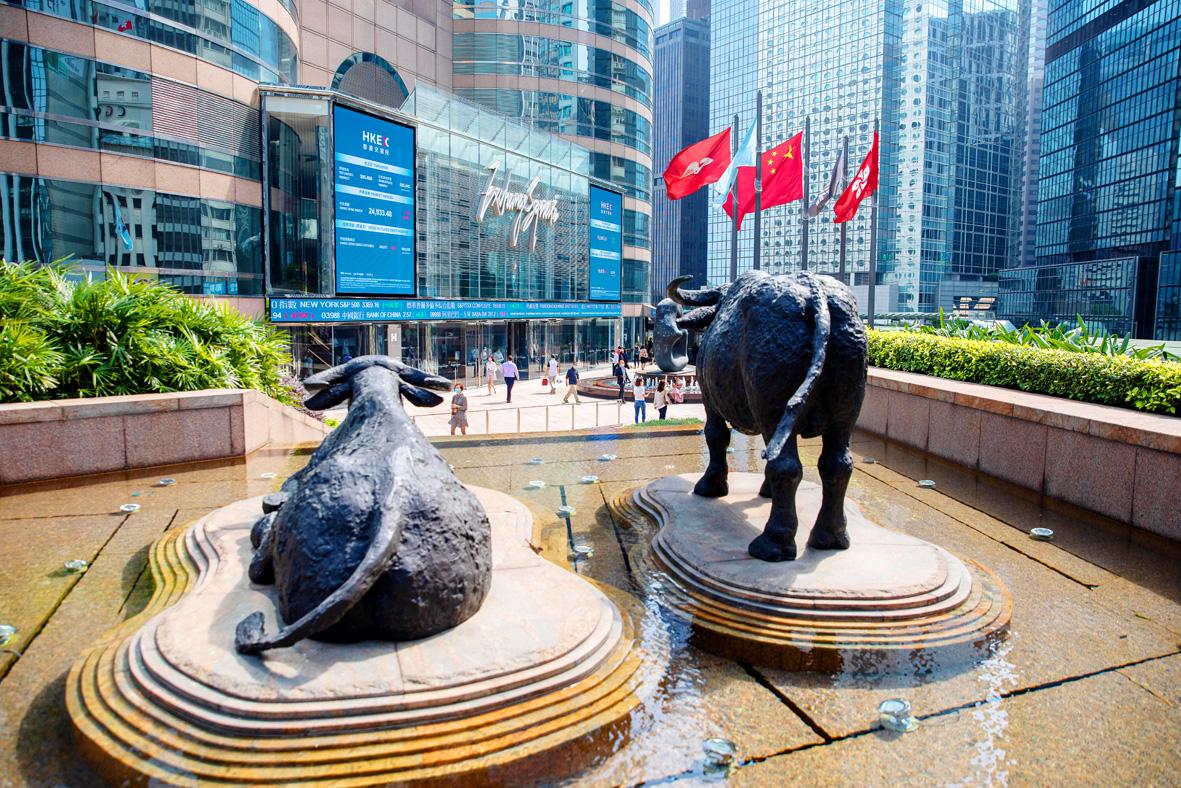The Hong Kong Government might order Hong Kong universities to cease exchanges with Taiwanese universities to prevent students’ involvement in political activities, a source said yesterday.
National security legislation imposed on the territory by Beijing in June empowers the Hong Kong government to interfere in educational exchanges.
Article 9 of the Law of the People’s Republic of China on Safeguarding National Security in the Hong Kong Special Administrative Region stipulates that the Hong Kong government “shall take necessary measures to strengthen ... supervision and regulation over matters concerning national security, including those relating to schools.”

Photo: EPA-EFE
Hong Kong government officials believe that the Democratic Progressive Party is influencing Hong Kong students in Taiwan and encouraging them to take part in “subversive activities” when they return home, the source said.
Beijing has asked the Hong Kong government to revise curricula in the territory and plans to require Hong Kong students to visit China at some time during their studies to attend lectures and write reports, the source said, adding that the changes aim to instill patriotism.
Hong Kong Outlanders spokeswoman Justine said that Hong Kong students are already self-censoring out of fear.
Hopefully, Hong Kongers would still be able to study in Taiwan, where they are free to express themselves, and the government offers them scholarships and other assistance, she said.
The Mainland Affairs Council on Saturday said the number of Hong Kong students applying for post-graduate studies this year more than doubled from last year.
This year, 648 Hong Kongers applied for master’s and doctoral degree programs in Taiwan, up from 260 last year, the council said, adding that the increase was likely due to deteriorating human rights conditions in the territory.
The number of Hong Kongers applying for undergraduate programs increased by 26 percent this year to 3,093 applicants, up from 2,463 last year, it said.
The council denied a local media report that applications by Hong Kong students had been delayed due to a high number of applicants.
Applications from overseas students were accepted online from Nov. 1 to Friday, it said, adding that they are being processed.
Due to restrictions on gatherings and movement to curtail the COVID-19 pandemic, some applicants in Hong Kong had to wait until the deadline to submit their documents to Taiwan’s representative office in the territory, it said, adding that the office stayed open late to collect applications.
The Ministry of Education has allowed universities to admit 10 percent more students for the coming academic year, it said.
As schools this year only filled 30 percent of their quotas for students from Macau and Hong Kong, there would be no problem with accepting more students from the territories, the council said.
The ministry has also implemented a new recruitment program for students from Macau and Hong Kong, and commissioned National Taiwan Normal University to open more classes in spring to accommodate them, it said.

PREPAREDNESS: Given the difficulty of importing ammunition during wartime, the Ministry of National Defense said it would prioritize ‘coproduction’ partnerships A newly formed unit of the Marine Corps tasked with land-based security operations has recently replaced its aging, domestically produced rifles with more advanced, US-made M4A1 rifles, a source said yesterday. The unnamed source familiar with the matter said the First Security Battalion of the Marine Corps’ Air Defense and Base Guard Group has replaced its older T65K2 rifles, which have been in service since the late 1980s, with the newly received M4A1s. The source did not say exactly when the upgrade took place or how many M4A1s were issued to the battalion. The confirmation came after Chinese-language media reported

The Taiwanese passport ranked 33rd in a global listing of passports by convenience this month, rising three places from last month’s ranking, but matching its position in January last year. The Henley Passport Index, an international ranking of passports by the number of designations its holder can travel to without a visa, showed that the Taiwan passport enables holders to travel to 139 countries and territories without a visa. Singapore’s passport was ranked the most powerful with visa-free access to 192 destinations out of 227, according to the index published on Tuesday by UK-based migration investment consultancy firm Henley and Partners. Japan’s and

A Ministry of Foreign Affairs official yesterday said that a delegation that visited China for an APEC meeting did not receive any kind of treatment that downgraded Taiwan’s sovereignty. Department of International Organizations Director-General Jonathan Sun (孫儉元) said that he and a group of ministry officials visited Shenzhen, China, to attend the APEC Informal Senior Officials’ Meeting last month. The trip went “smoothly and safely” for all Taiwanese delegates, as the Chinese side arranged the trip in accordance with long-standing practices, Sun said at the ministry’s weekly briefing. The Taiwanese group did not encounter any political suppression, he said. Sun made the remarks when

BROAD AGREEMENT: The two are nearing a trade deal to reduce Taiwan’s tariff to 15% and a commitment for TSMC to build five more fabs, a ‘New York Times’ report said Taiwan and the US have reached a broad consensus on a trade deal, the Executive Yuan’s Office of Trade Negotiations said yesterday, after a report said that Washington is set to reduce Taiwan’s tariff rate to 15 percent. The New York Times on Monday reported that the two nations are nearing a trade deal to reduce Taiwan’s tariff rate to 15 percent and commit Taiwan Semiconductor Manufacturing Co (TSMC, 台積電) to building at least five more facilities in the US. “The agreement, which has been under negotiation for months, is being legally scrubbed and could be announced this month,” the paper said,